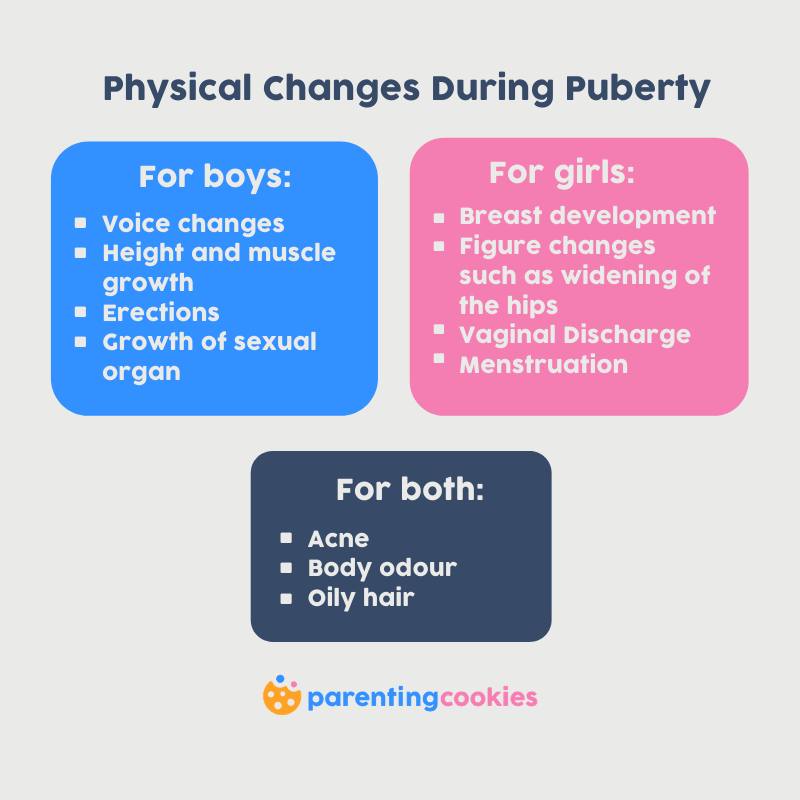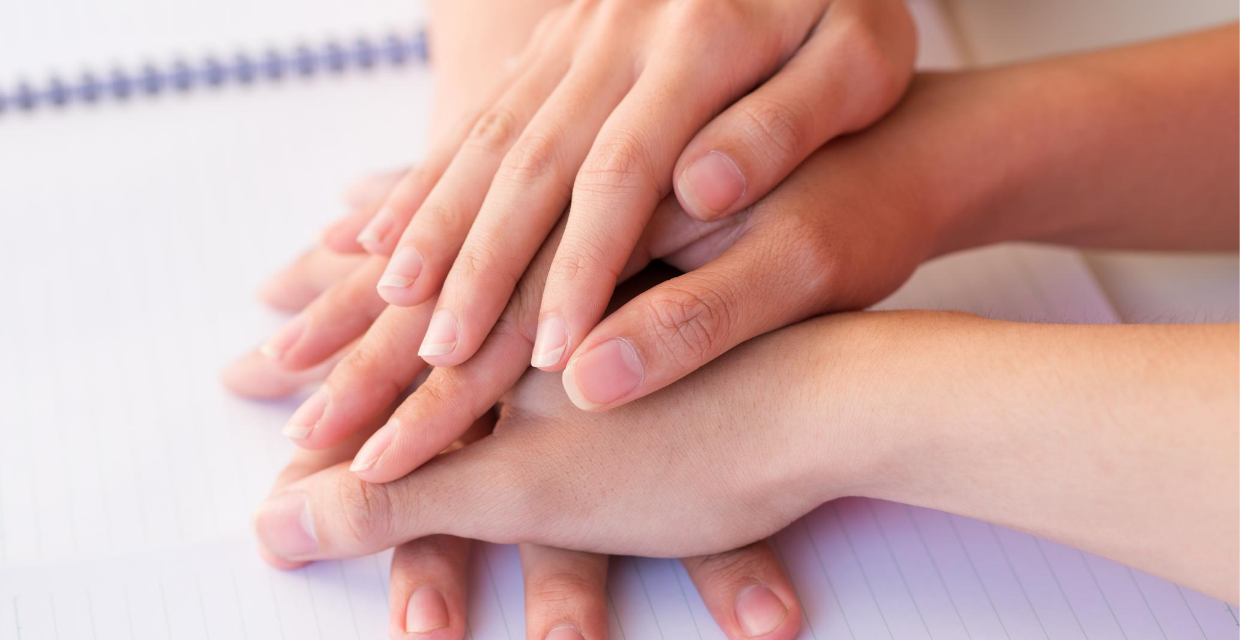Our sweet little babies won’t be little forever. They will change in every aspect such as physical, emotional, mental, and other facets of their identity.
With these changes, you will also change as a parent. Your parenting style and overall relationship with them will transform. So how exactly can we deal with a child going through puberty?
Puberty begins anywhere from the ages of 8 to 16 years old. From there, their body and mental state will develop into adulthood. This means that their major body systems and organs start to mature as they are triggered by hormonal changes.
Below are some of their physical, social, and emotional changes during puberty:
Physical Changes During Puberty

Physical changes are the most obvious ones that our children will experience. For the most part, boys and girls will undergo similar physical changes but the differences are important to note.

Social And Emotional Changes During Puberty

Change doesn’t just happen on the outside. Their mental state is also affected by various hormonal changes.
Each part of the brain develops at different speeds. For instance, parts responsible for feeling intense emotions are strengthened earlier than the ones that are for emotion regulation. Because of this, our kids may undergo difficulties in handling their emotions.
A change brought about by this is their self-consciousness. The changes in their body will be obvious. Along with the pressures of social media and the ideal body type it imposes, they will inevitably feel self-conscious.
Read more: How To Cultivate Positive Body Image In Teens
Their behaviour and attitude will also be affected by how differently they view other people as well. This is the time when they feel an attraction towards others. Some may feel these towards the opposite sex or members of the same sex. Given that, puberty is the most crucial time of exploration for them.
They’ll also want to be more independent. Now that they are more capable to perform tasks physically and mentally, they will seek more roles that will enable them to explore these new traits.
How To Support A Child Through Puberty

They will start to explore new things in terms of relationships, interests, and overall identity. We must step up as parents to guide them in the right direction while also giving them the freedom to get to know who they are.
Here are some ways we can support our children through puberty:
- Educate them about puberty and the changes they’re going through
- Reinforce that these changes are normal
- Encourage healthy lifestyle choices
- Encourage open communication between you two
- Offer safe outlets for them
- Avoid making comparisons between your child and others
- Praise them for their achievements whether big or small
- Support them in their self-expression
- Stay calm during their outbursts or mood swings
- Encourage healthy sleeping schedules
In A Nutshell…
Puberty can be challenging not just to our children, but to us as parents as well. We will need to make adjustments to our parenting style to offer better guidance. First, let’s understand the changes that they are going through whether physically, mentally, or emotionally. From there, we can form new approaches in handling our tweens in the healthiest way possible.
What are some tips you have when dealing with puberty? Share it with us too!






